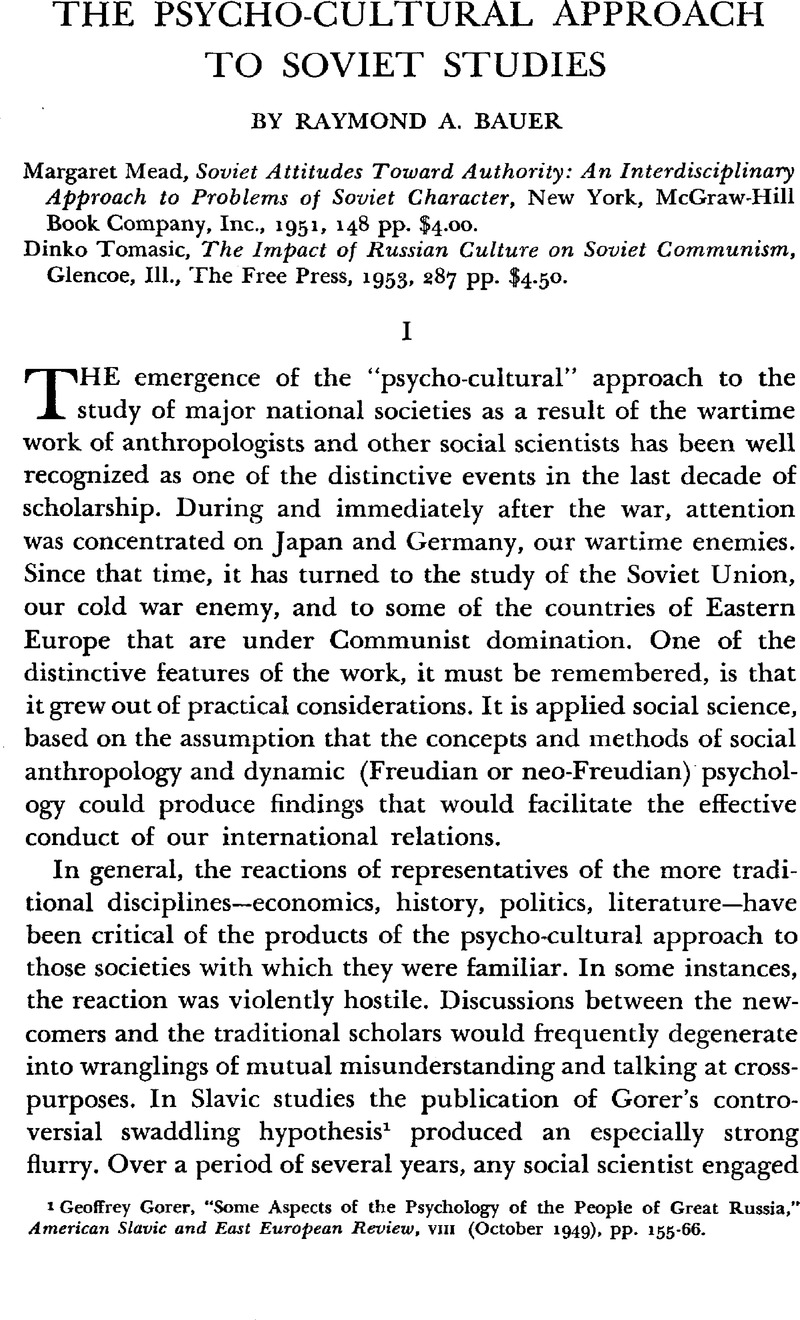No CrossRef data available.
Article contents
The Psycho-Cultural Approach to Soviet Studies
Review products
Published online by Cambridge University Press: 18 July 2011
Abstract

- Type
- Review Articles
- Information
- Copyright
- Copyright © Trustees of Princeton University 1954
References
1 Gorer, Geoffrey, “Some Aspects of the Psychology of the People of Great Russia,” American Slavic and East European Review, VIII (October 1949), pp. 155–66.CrossRefGoogle Scholar
2 Like many Americans, they had converted Gorer, an Englishman, into an American, there being apparently a general agreement that this particular form of “craziness” was a typically American enterprise.
3 The reviewer wishes to put himself on record as being more than minimally aware that, for all the reasons cited above, it is patently beyond the competence of any one person to review workof this sort, and that the limitations which are inherent in the psycho-cultural approach are at least equally applicable to reviews thereof.
4 A conspicuous exception to this generalization is “Who Gets Power and Why,” by Pool, Ithiel de Sola, World Politics, II (October 1949), pp. 120–34.CrossRefGoogle Scholar Also Goidman, Irving, “Psychiatric Interpretation of Russian History: A Reply to Geoffrey Gorer,” American Slavic and East European Review, IX (October 1950), pp. 151–61CrossRefGoogle Scholar, is distinguished by the extent to which the author sticks firmly to the main issues.
5 This type of analysis is similar to that employed by the same author in his book, Personality and Culture in Eastern European Politics. In this earlier work, he was concerned with the impact on modern Yugoslavian culture of the cultures of the settled plowmen of the valleys and of the Ural-Altaic sheep-raisers and horse-breeders who invaded Europe from time to time.
6 Psychological tests employed by the Harvard Project on the Soviet Social System, for example, showed that Russians tended, as Tomasic would contend, to see mothers as nurturant and supporting, and fathers as arbitrary and authoritarian. This tendency was considerably stronger among the Russian group than among a control sample of Americans.
7 Clinical psychological data of the Harvard Project on the Soviet Social System do not point to such aggressiveness, even though the refugee sample from which these data are drawn are strongly weighted toward the young Soviet male middle elite.
8 Cf. Dicks, Henry V., “Observations on Contemporary Russian Behaviour,” Human Relations, V, No. 2 (1952), pp. 111–75.CrossRefGoogle Scholar
9 The clinical psychological findings of this project will be reported by Drs. Helen Beier and Eugenia Hanfman in a forthcoming volume.
10 For the moment, I would set aside additional complaints about the fact that the Ukrainian and other national minorities living under Soviet rule are ignored.


